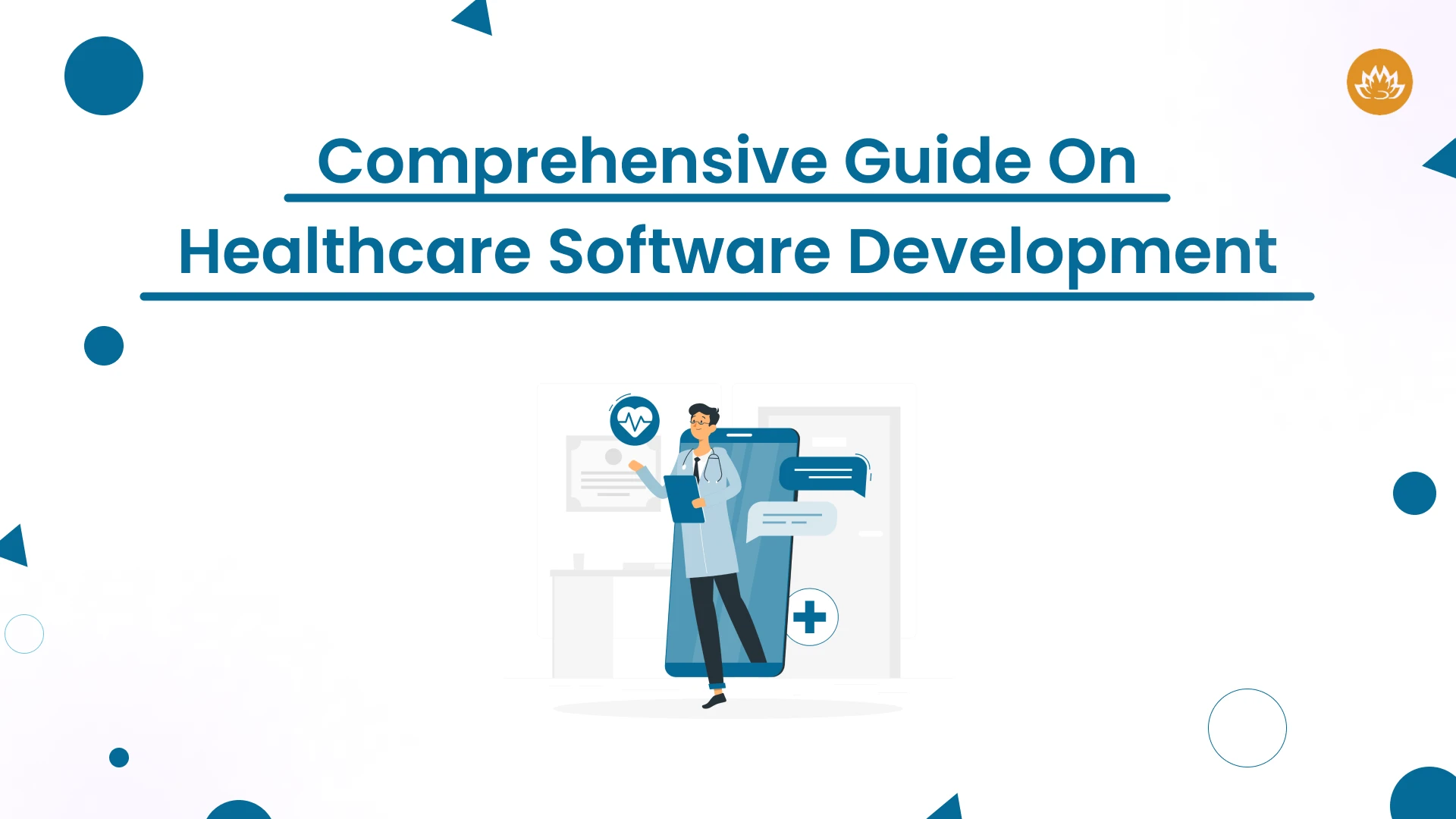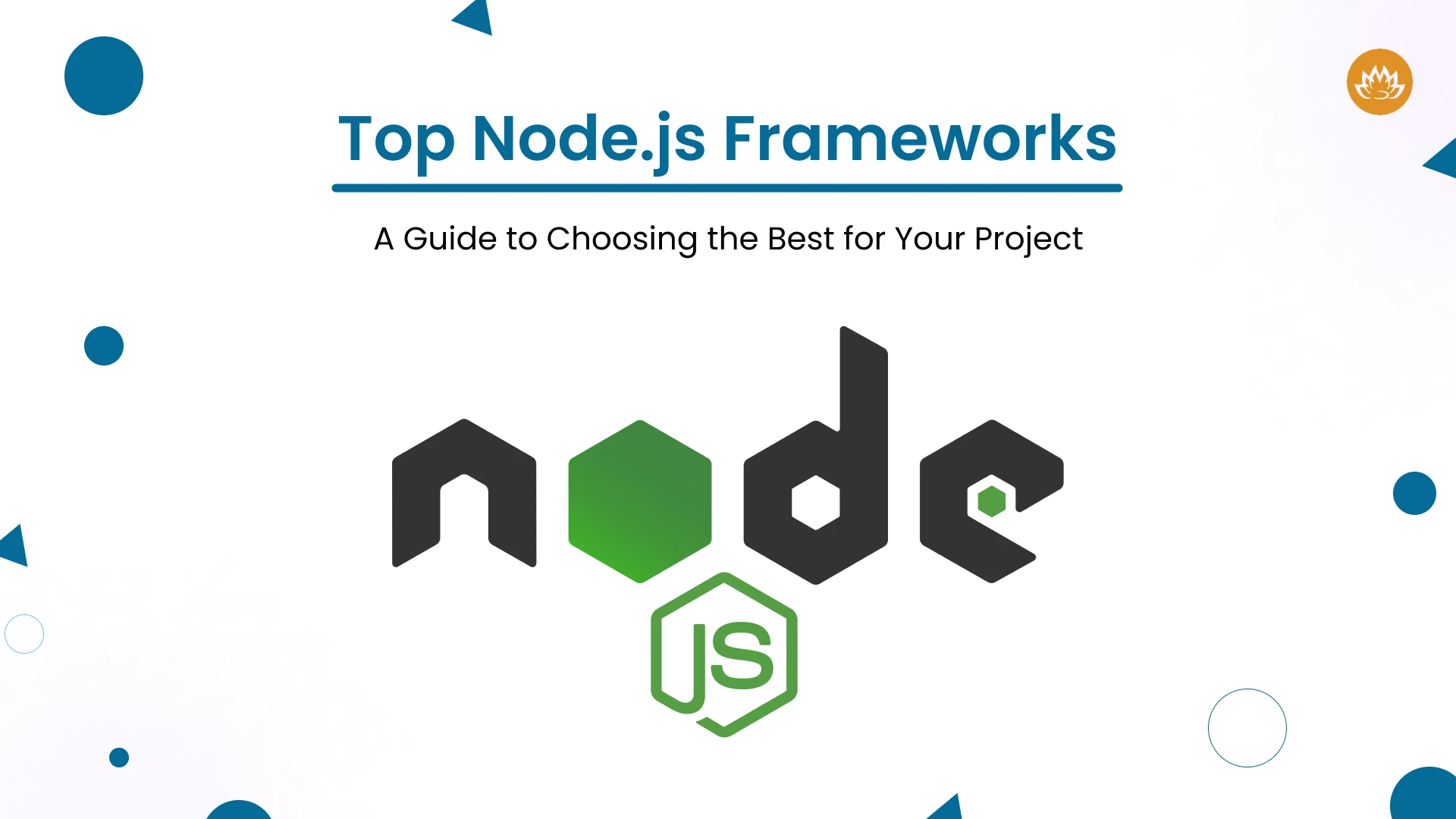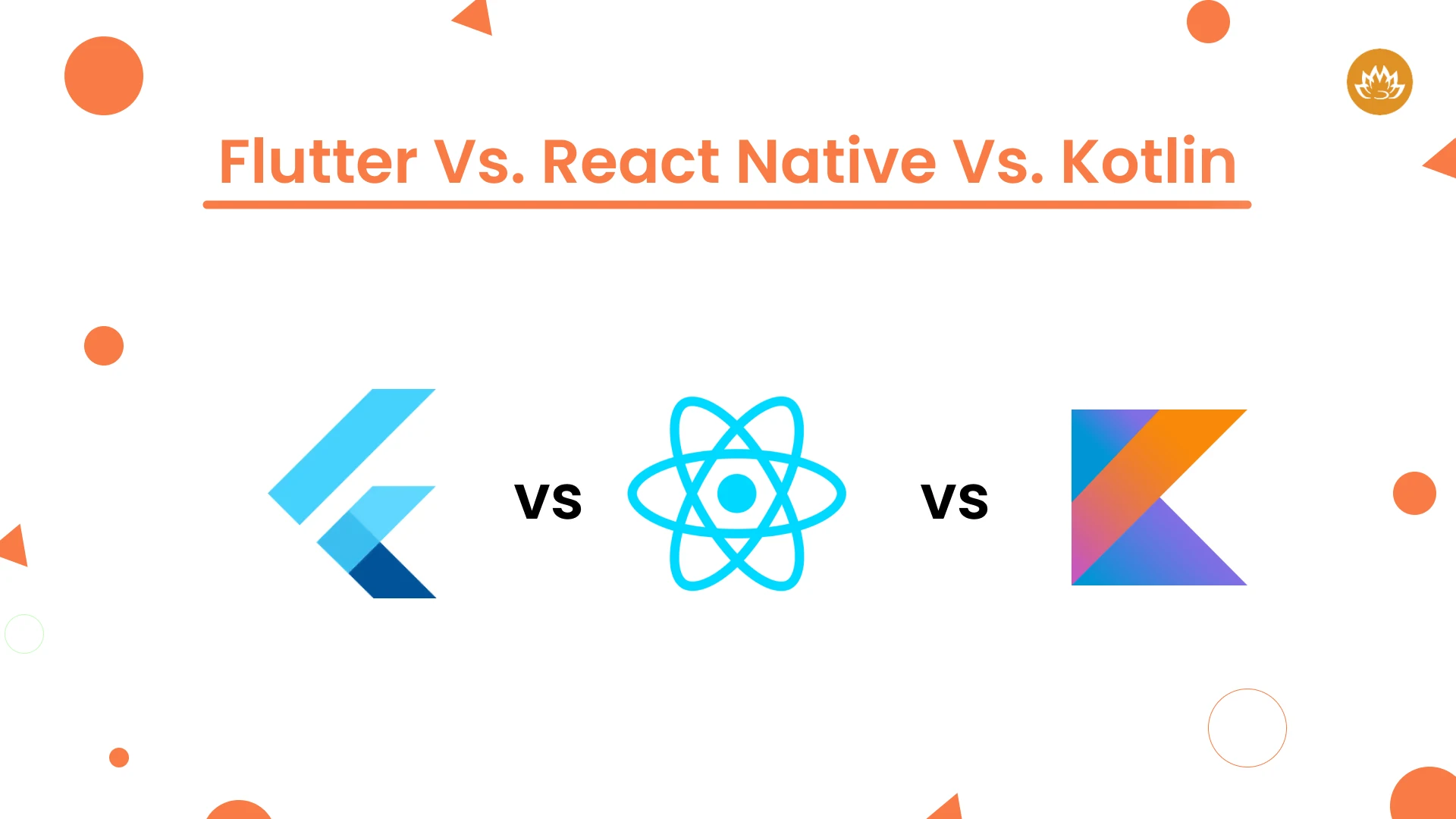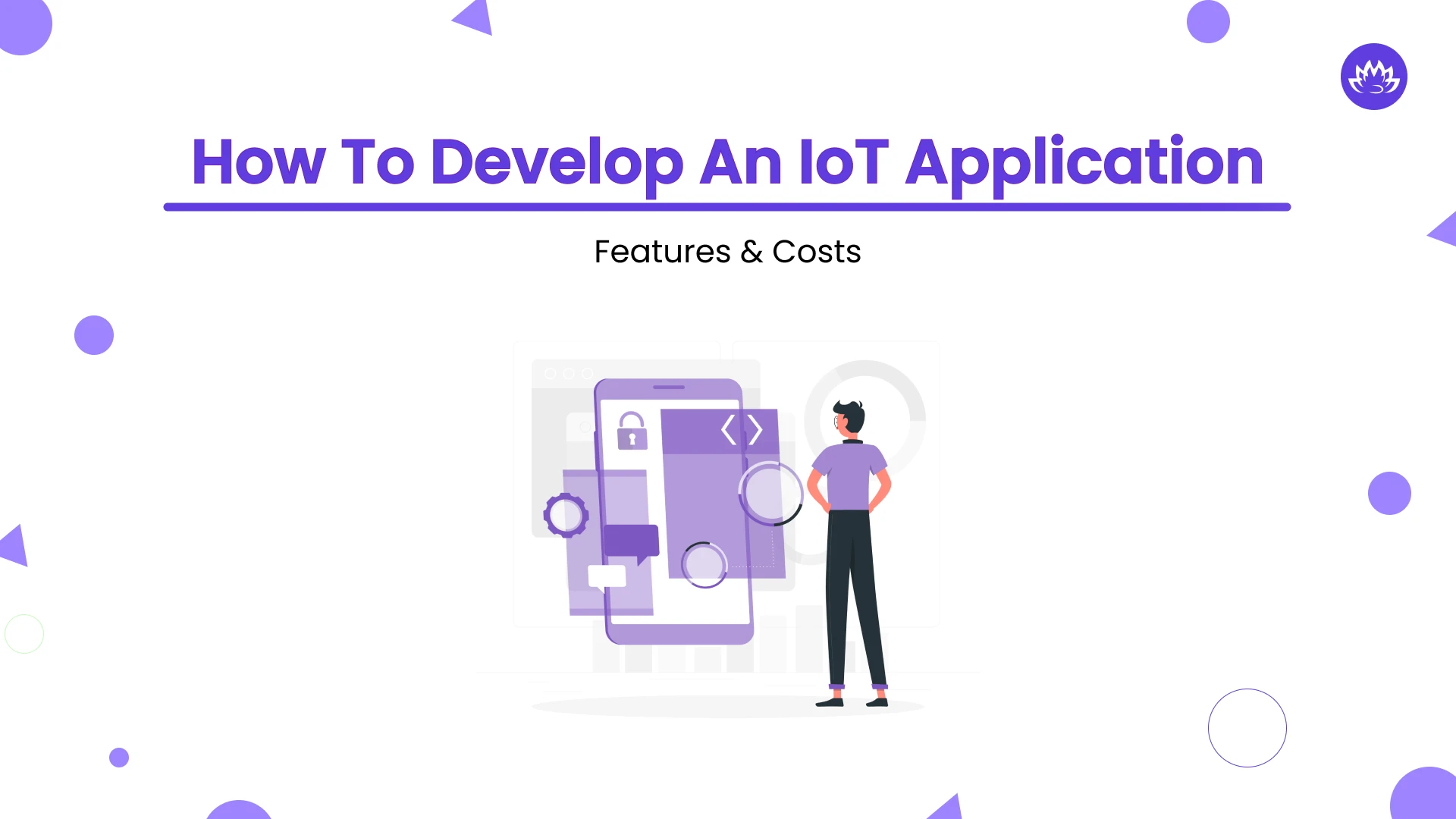Digital innovation is reshaping the world we live in. Of all the domains that observe rapid digital transformation, healthcare picks up with the new technology trends slowly but consistently. Lately, it has shown that the tide has shifted with the rising demand for user-friendly and accessible healthcare software. With the integration of modern technologies like IoT, ML, and AI in healthcare, organizations can provide positive patient experiences, optimized resources, and advanced research and diagnostics.
The blog casts light on the world that belongs to healthcare software development, unraveling the top benefits of having healthcare software and the estimated costs incurred.
What is healthcare software development?
Healthcare software development is the process of designing and developing apps and systems that can improve healthcare operations and increase productivity. It also enhances the health quality of patients, increases the productivity of medical professionals, and improves the brand reputation of healthcare organizations.
With online appointment scheduling, medication management tools, wearable devices, and telehealth interfaces, health software is helping patients live more conveniently and healthier lives. Electronic Healthcare Records (EHRs) are gaining popularity among patients and hospitals as they can efficiently manage patient data, telehealth platforms, and diagnostic tools. Organizations can track and improve community health outcomes and laboratory information systems with centralized hospital operations.
To emphasize, increasingly, small and large hospitals are approaching mobile app development companies to build robust healthcare software. Recent research reveals that the market sales of global healthcare IT, which were $394.6 bn in 2022, are estimated to increase to $1 tn by 2027. Another study by Experian shows that 56% of patients now demand various digital options to manage their health. They want healthcare services to be accurate, personalized, swift, and digitally accessible.
Types of healthcare software
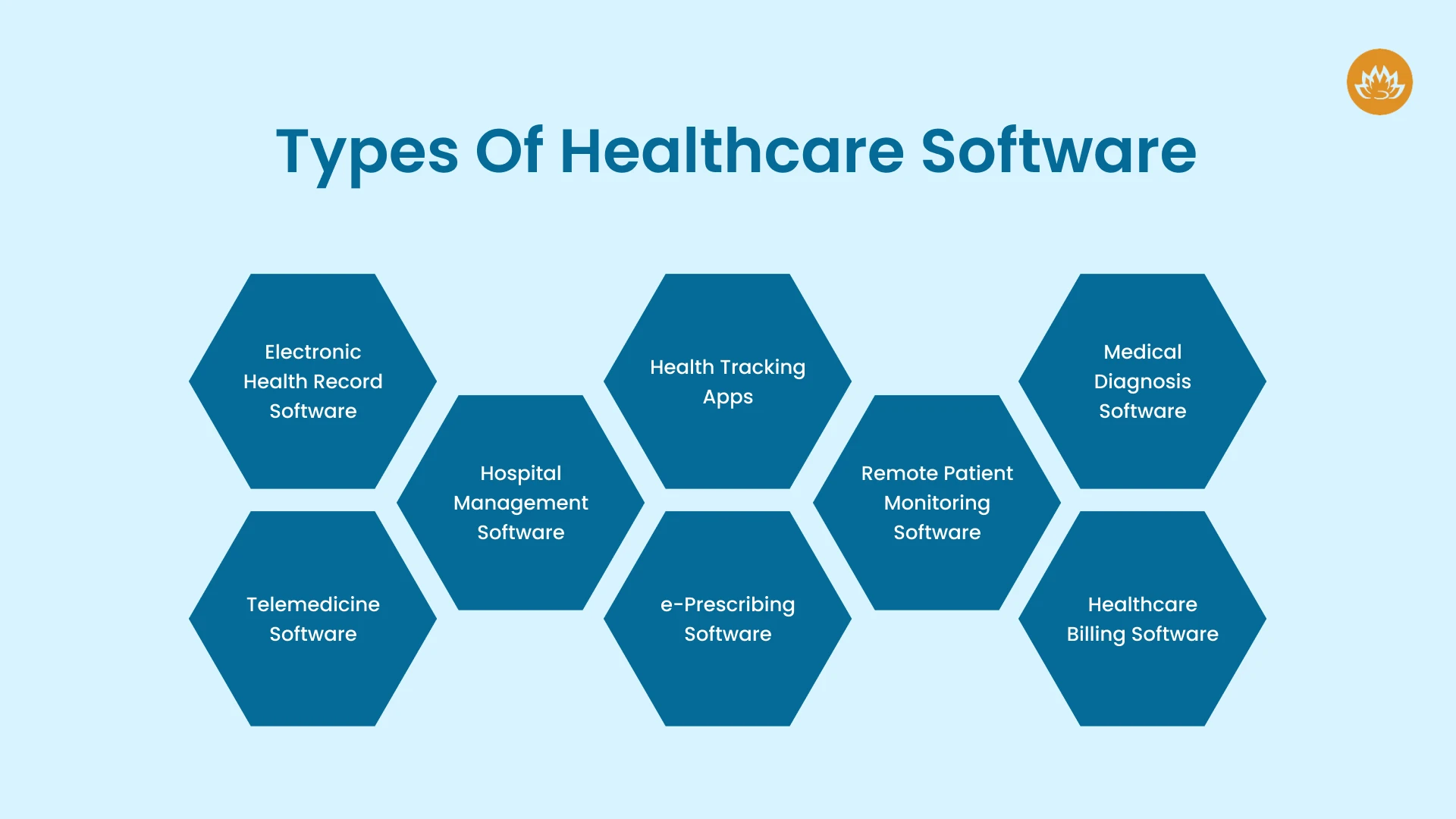
Some of the different types of healthcare software are as follows. You can hire a dedicated developer to build tailored healthcare software specific to your needs.
Electronic Health Record Software
EHRs are the digital form of a patient’s medical history, enabling healthcare IT service providers to check patient care status at various times, such as medication, immunizations, allergies, diagnoses, and other processes that patients must go through. With EHR software development, healthcare providers can facilitate patient care to the next level.
Telemedicine Software
With telemedicine software, healthcare providers can directly communicate with patients via video calling, even from the remotest locations. The software plays a vital role in circumstances wherein doctors cannot provide urgent care visits, patients need a mental health review, or patients need to manage a chronic disease regularly. With telemedicine mobile app development, patients can access medical care even from distant areas.
Hospital Management Software
Hospital management software is an integrated information management system that controls various hospital functionalities. With this software, organizations can seamlessly perform patient registration, appointment scheduling, billing, and stock management tasks.
Health Tracking Apps
Health tracking apps provide real-time health data, such as weight management, glucose levels, and blood pressure. They are integrated tools that help patients remain motivated and optimistic about improving their health.
e-Prescribing Software
This is a software authorized by doctors to send prescriptions to pharmacies virtually. With this software, hospitals and doctors can improve their productivity and enhance precision, enabling reduced medication errors.
Remote Patient Monitoring Software
Healthcare providers can utilize remote patient monitoring software to receive crucial health data from a distance. This data can be used to detect future complications and take necessary precautions to reduce the number of hospital admissions.
Medical Diagnosis Software
Medical diagnosis software harnesses advanced technologies like AI, helping doctors diagnose diseases, obtain crucial information from patients, such as symptoms, test results, and medical history, and make necessary recommendations.
Healthcare Billing Software
This is another tool that helps healthcare IT service providers conduct seamless billing and coding activities. With such software, organizations can automate daily tasks such as claim creation and payment tracking.
Benefits of building healthcare software
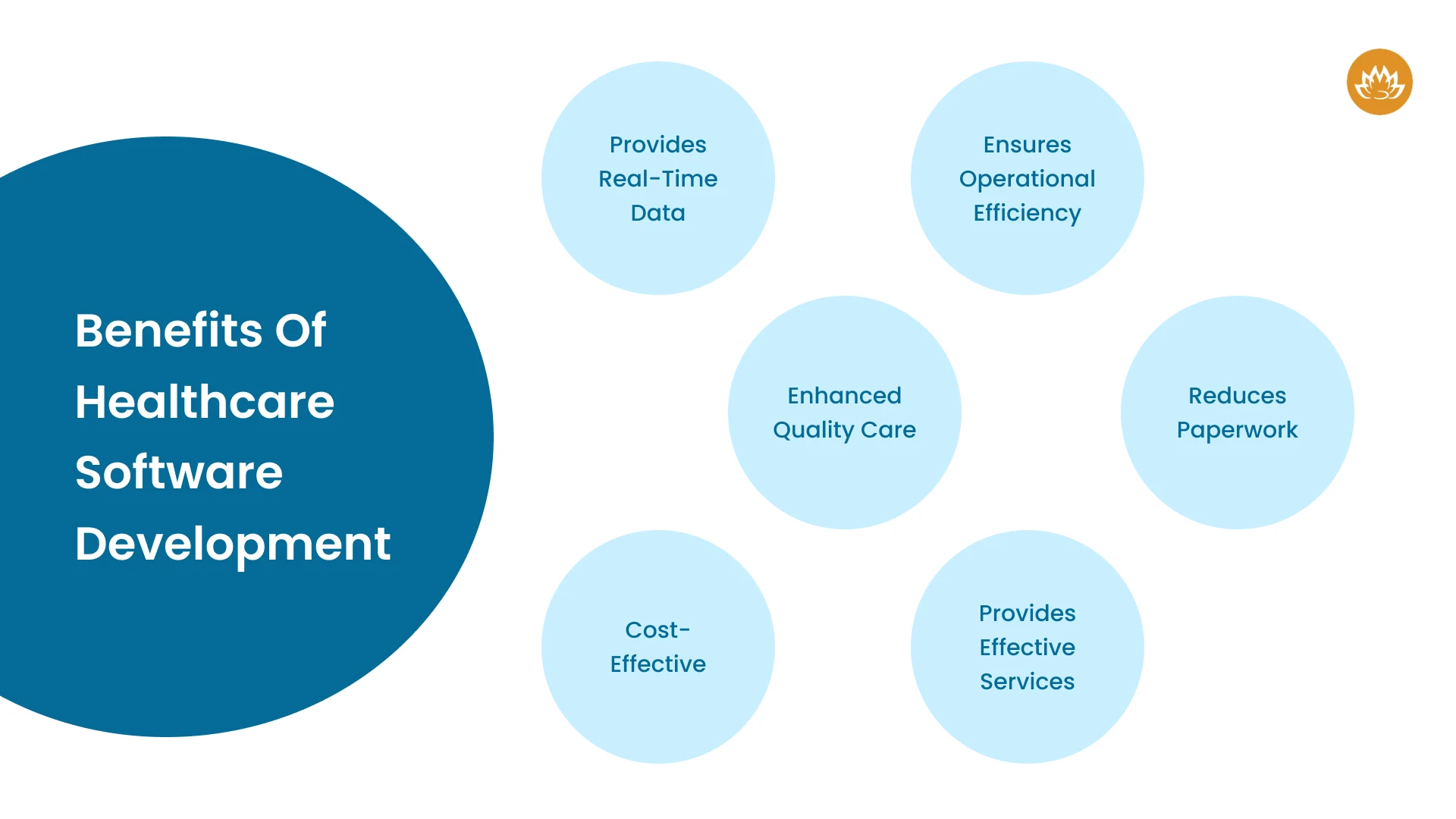
Provides Real-Time Data
Healthcare software can provide real-time data that can be leveraged for several purposes, such as data analytics, report creation, performance tracking, etc. At the onset, this benefit can help prioritize and identify the best clinical results and organize several health events. The clinical staff and doctors get immediate access to information regarding previous patients, health concerns, and any other additional services they may need.
Ensures Operational Efficiency
Through workflow automation, hospitals can efficiently manage various operations, enhance hospital administration, and allow quick access to data for multiple purposes.
Enhanced Quality Care
With a remote patient monitoring module, hospitals can provide quality care and continuous supervision. In addition, integrating personalized technologies will help analyze several readings via different healthcare professionals.
Reduces Paperwork
Organizations need not maintain patient registration records on paper now. Everything gets recorded into the software enabling data storage, file management, form filling, and appointment scheduling, all made possible through automation.
Cost-Effective
Through automation, healthcare providers can reduce costs and provide cost-effective operational workflows, which will help healthcare organizations provide seamless and accessible clinical care to people.
Provides Effective Services
Using healthcare software will help doctors better understand patients’ health and requirements. This will lead to better services, such as providing service whenever needed to address various patient queries. With healthcare software, you can also enhance effective communication online by writing emails, doing video calls, or chatting from anywhere in the world.
Process of developing healthcare software

To create robust healthcare software, you need to hire on-demand app developers who can carefully comply with all the regulations and interact within the healthcare ecosystem, safeguarding data and crucial patient information. The process is as follows:
Identify Your Needs and Goals
-
Firstly, find the problem that you want to solve. Know the reasons for using your healthcare software worldwide.
-
Determine the exact target audience to whom you can sell your software and help them understand its multiple benefits.
-
Find out the key features and functionality needed for software development.
-
Ensure the software complies with healthcare regulations such as HIPAA and GDPR.
Planning and Strategy
-
Provide access to existing healthcare software solutions so that they detect any sort of future challenges.
-
Enlist in detail the information on user stories, technical specifications, and various other technical requirements like documentation.
-
Identify the development approach, such as what is needed to develop our software from zero or how to integrate with ready-to-use third-party applications.
Design and Development
-
Determine robust and visually appealing UI/UX services that can help you design compelling interfaces that are simple and easy to access and comprise the latest technologies for both tech-aware and non-tech audiences.
-
Another small step within this stage is software development , which involves monitoring necessary codes and ensuring the software is developed according to pre-defined specifications.
-
The next sub-stage is providing continuous software testing during various development stages, ensuring software functions correctly and with accuracy.
-
The next sub-stage contains software applications that involve developing frontend and backend through third-party APIs and committing to abide by healthcare development best practices.
Deployment and Training
-
Identify the best deployment approach that may work better for your healthcare organization. It can be cloud-based, on-premises, or any other hybrid model.
-
Create comprehensive training and learning material that will help you attract more users and provide ongoing assistance for them to complete their work successfully.
Maintenance and Support
-
Maintaining your healthcare software is one of the most crucial stages in avoiding bugs and cloud vulnerabilities once the app is released.
-
Due to the instability of the healthcare environment, you are always prepared for changes and make necessary adjustments based on feedback and innovation.
Cost of building healthcare software in 2024
The cost of building healthcare software depends on user-specific needs. To overcome the basic challenges that you may face in creating your software, consider identifying all the possible areas of rising costs in 2024.
Some of the common factors that directly impact the pricing of healthcare software development are:
-
Project complexity and features.
-
Team expertise with highly specialized healthcare software developers
-
The kind of tech stack chosen to meet customers' advanced and evolving needs.
-
Regulatory compliances ensure the safety and privacy of patient data within the flexible development process timelines.
Conclusion
The future of healthcare software will be exciting. It will unravel the latest and most advanced technologies, such as AI and precision, that will revolutionize patient care and phenomenally change the healthcare industry. To create a robust and the most reliable healthcare software application needs more time and effort. Not all developers have the knack to develop such advanced software. Our experienced professionals at Whitelotus Corporation have a great team in place. These skilled professionals will evaluate customer needs and build an ideal product that will become the most successful milestone in your business. We can become not only your experienced partner but also a dedicated team of top-class engineers who are on the feet to help you lead by making the right choices.
Whitelotus Corporation is the leading cross-platform app development company delivering robust web applications. You can hire dedicated developers from Whitelotus Corporation to build small—and large-scale healthcare software applications. We know how to harness the tools and functionalities of various technologies to create the best solutions that will meet your expectations.
FAQs
What special skills are needed to develop healthcare software for any company?
To develop resilient healthcare software, you need a professional healthcare expert who can go beyond coding skills and have expertise in automation workflows, data security compliance, and user-friendly designs for doctors and patients.
What are the different types of healthcare software solutions that you can provide?
Different types of healthcare software solutions are available in the present market, including EHRs, billing software, reduced patient monitoring, administrative tasks software, and medical imaging software.
Author
-

Sunil is a result-orientated Chief Technology Officer with over a decade of deep technical experience delivering solutions to startups, entrepreneurs, and enterprises across the globe. Have led large-scale projects in mobile and web applications using technologies such as React Native, Flutter, Laravel, MEAN and MERN stack development.
View all posts



